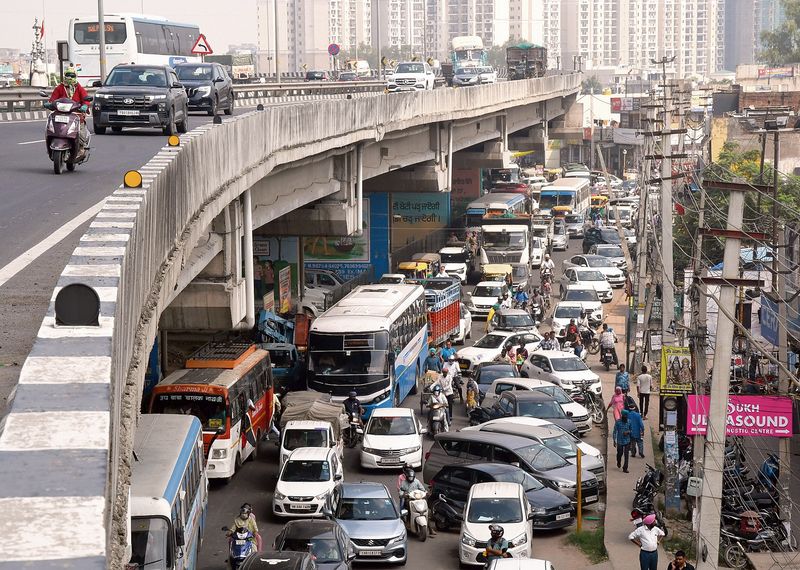
AS Prime Minister Narendra Modi and Home Minister Amit Shah are poised to take to the skies en route to Chandigarh, the common commuters on the Delhi-Noida border found themselves mired in yet another gridlock. The irony is stark: while the leaders of the nation soar above the turmoil, the very people who till the land and feed the nation are left stranded, both on the roads and in negotiations. The farmers’ protest, now approaching its fourth year, continues to simmer without a resolution in sight. Their demands, including a legally guaranteed Minimum Support Price (MSP), loan waivers and compensation for families of deceased protesters, remain unmet.
The government’s silence has only deepened the mistrust, making a peaceful resolution seem like a distant dream. Vice-President Jagdeep Dhankhar’s appeal for dialogue rings hollow when juxtaposed against the government’s actions — or lack thereof. While Dhankhar promises open doors, the roads leading to those doors remain barricaded, both literally and figuratively. Farmers, once hailed as the backbone of the nation, are treated as obstacles rather than stakeholders in India’s development.
The Supreme Court’s call for peaceful protests without public inconvenience is a fair point. Yet, one must ask: who is inconveniencing whom? The farmers’ agitation is a manifestation of systemic neglect and the real inconvenience is the government’s apathy towards their plight. As traffic jams paralyse the Capital’s borders, they serve as a metaphor for the current state of affairs — progress stalled, voices unheard and grievances unresolved. The government must descend from its lofty perch and walk the ground with the farmers, for the road to a truly developed India runs through its farmlands.
